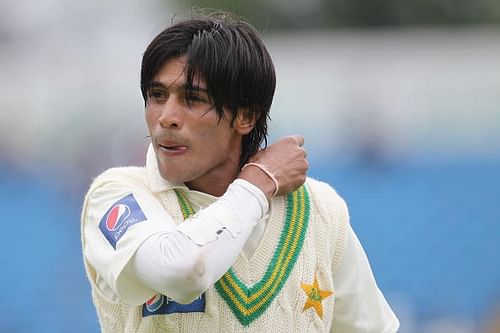
Tainted Pakistan bowler Mohammad Amir set for return to cricket

22-year-old Pakistani fast bowler Mohammad Amir, who was seen as one of his country’s most promising cricketers of this generation before getting embroiled in the 2010 betting scam and receiving a five-year ban, is set for a return to domestic cricket as early as next month, according to reports.
According to a recent amendment made by the ICC review committee to its anti-corruption code, a banned player is “permitted to be involved in domestic matches prior to the end of his ban period”.
Amir’s period of ban ends in August, but ICC will decide next week when the fast bowler can return to action.
A Pakistan Cricket Board (PCB) spokesman said: "It is most likely that Amir will get an (immediate) reprieve to play domestic cricket."
Amir's best chance of playing competitive cricket would be a possible return in the Super Eight T20 Cup in Pakistan after the World Cup, because the domestic season in Pakistan is about to finish and begins again in October.
Youngest player to take 50 Test wickets
The 22-year-old was handed a ban of five years after he admitted to bowling intentional no-balls in a Test match against England at Lord’s in 2010. Pleading guilty, Amir opted not to appeal against the ban, choosing to serve the jail term instead, in addition to attending the rehabilitation program by the ICC in the Queen’s Counsel in England.
Of the three accused – Salman Butt, Mohammad Asif and the young fast bowler, it was him who had drawn the most sympathy and considered to have naively entered a way of crime under pressure from seniors without having fully realized the consequences of his act.
He had become the youngest player to take 50 wickets in Test cricket, against England at Trent Bridge in 2010. As the reports say, he might soon be speeding in to rattle off-stumps again.
In the last four years, Amir has completed an Anti Corruption and Security Unit (ACSU) education program with PCB, showed a high degree of remorse, and disclosed relevant information to the PCB as well as the anti-corruption units.